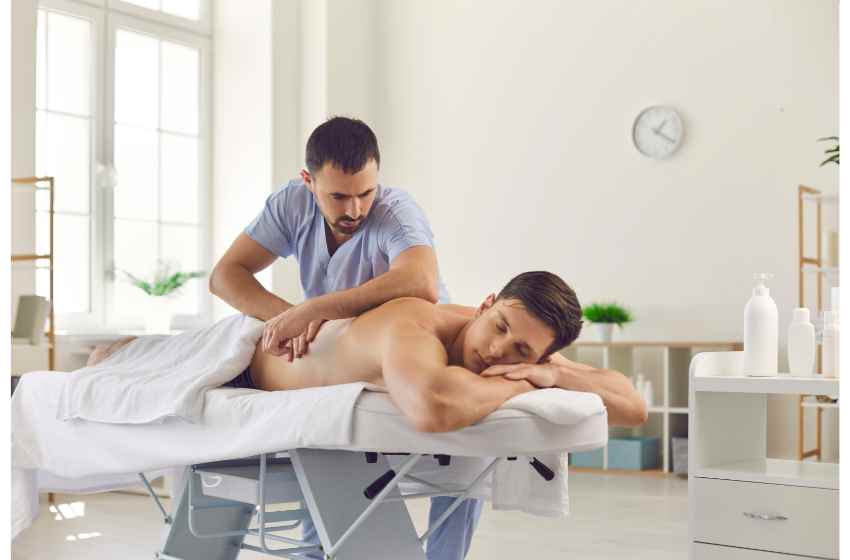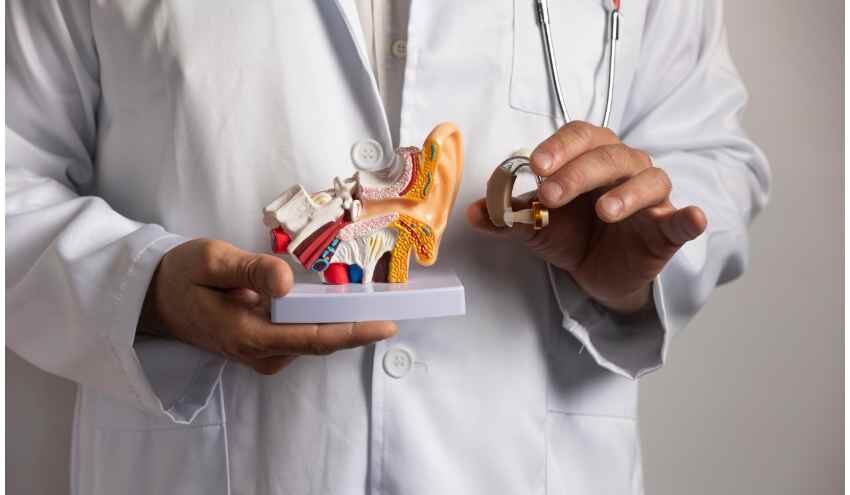In an era where stress-related illnesses are reaching epidemic proportions across Britain, massage therapy has emerged from the realm of luxury spa treatments to become a scientifically validated healthcare intervention. With mounting research demonstrating its profound impact on both physical and mental wellbeing, the health benefits of massage therapy are increasingly recognised by medical professionals as a legitimate therapeutic tool for addressing the health challenges facing modern British society.
The British Health Challenge
In the UK, 1 in 14 individuals report feeling stressed every single day, whilst 1 in 6 people experience mental health problems in any given week in England. This concerning trend has profound implications for both individual wellbeing and the broader healthcare system, with stress-related conditions contributing significantly to workplace absences and healthcare costs.
The traditional approach to managing these conditions has relied heavily on pharmaceutical interventions and lengthy waiting lists for psychological support. However, emerging research suggests that massage therapy could provide a valuable complementary treatment that addresses both the physical and psychological symptoms of stress-related disorders.
At a time when the NHS is struggling to cope with demands on services, with mental health services being especially challenging for individuals to access on a timely basis, introducing this complementary therapy could potentially support patients and help reduce waiting lists.
Scientific Evidence for Stress Reduction
The physiological mechanisms underlying massage therapy’s effectiveness are now well understood through rigorous scientific study. Research shows that massage reduces cortisol levels by 31% on average and increases serotonin and dopamine, the neurotransmitters responsible for mood regulation, by 28% and 31% respectively.
A recent study by German researchers indicated that short-term interventions such as massage therapy can robustly reduce stress on a psychological and physiological level by boosting the body’s principal engine for relaxation – the parasympathetic nervous system. This activation of the body’s natural relaxation response provides measurable benefits that extend far beyond temporary comfort.
The Touch Research Institute at the University of Miami has conducted extensive studies demonstrating that massage therapy effectively reduces symptoms associated with mental health disorders, including anxiety, depression and stress. By stimulating the release of natural endorphins such as cortisol that regulate mood, massage can reduce stress and aid relaxation.
Mental Health Applications
The potential impact on Britain’s mental health crisis is particularly significant. Introducing touch and massage therapy to the UK’s regular health service could reduce mental health problems by more than 10% and cut the number of sick days taken across the UK by 1.76 million, according to a recent report from the British Beauty Council.
Clinical research supports these projections. The results showed that massage therapy was linked to a significant reduction in anxiety and depression symptoms and a moderate reduction in stress. A one-hour massage lowers cortisol in your body while also releasing serotonin, creating biochemical changes that directly counteract the physiological effects of chronic stress and anxiety.
For healthcare professionals treating mental health conditions, massage offers a valuable adjunctive therapy. Experienced health professionals working with patients who complain of chronic stress, test-taking stress, and generalised anxiety, find that regular massage therapy effectively reduces anxiety, improves emotional resilience, and enhances feelings of general wellbeing in anxious patients, notes clinical research from Psychology Today.
Physical Health Benefits
Beyond mental health applications, massage therapy demonstrates measurable benefits across numerous physical health conditions. Several reviews of research have found weak evidence that massage may be helpful for low-back pain, with Clinical guidelines issued by the American College of Physicians in 2017 included massage as an option for treating acute/subacute low-back pain.
The immune system also benefits significantly from regular massage therapy. Studies show that massage therapy can enhance immune function by increasing the activity of natural killer (NK) cells, which play a key role in defending the body against illness.
Medical research indicates that massage therapy can help boost immune system strength by increasing the activity level of the body’s natural “killer T cells,” which fight off viruses.
Cardiovascular health represents another area of documented benefit. Massage therapy has been shown to help lower blood pressure and manage stress, both of which can promote heart health. These effects prove particularly valuable given the strong correlation between chronic stress and cardiovascular disease.
Pain Management and Recovery
For chronic pain conditions that affect millions of Britons, massage therapy offers evidence-based relief. Overall, low-to-moderate-level evidence indicated that massage reduces pain in the short term compared to no treatment in people with shoulder pain and osteoarthritis of the knee.
In this review, massage therapy has been shown to have beneficial effects on varying conditions, including prenatal depression, preterm infants, full-term infants, autism, skin conditions, pain syndromes, including arthritis and fibromyalgia, hypertension, autoimmune conditions, including asthma and multiple sclerosis.
The mechanisms underlying pain relief are well documented. Researchers have found that massage releases endorphins—the body’s natural painkillers. It can also reduce the heart rate and may even impact the immune system.
Sleep Quality and Cognitive Function
Sleep disorders, increasingly common in modern Britain, respond particularly well to massage intervention. Research shows that trigger point massage can be especially effective at improving sleep and treating insomnia. The neurochemical changes induced by massage create optimal conditions for restorative sleep.
Melatonin – the sleep-inducing hormone that plays a key role in our circadian rhythm – can also be triggered by the pressure applied during a massage, causing you to feel sleepy. This natural sleep enhancement proves particularly valuable for individuals whose sleep patterns have been disrupted by stress or chronic pain.
Cognitive function also benefits from regular massage therapy. Enhanced mental clarity and cognitive performance in daily tasks, benefiting professionals and individuals with high-stress lives, represents a measurable outcome that supports workplace productivity and overall quality of life.
Specialised Applications
For elderly populations, research has highlighted a link between massage and dementia, suggesting that massage could be used as a therapy to improve symptoms. This study found that massaging the hands of patients with dementia reduced agitation and biological stress markers.
Cancer care represents another significant application. Massage may help reduce pain, improve mood, promote relaxation, and enhance sleep in individuals with cancer. However, a massage therapist must take special precautions when treating someone with cancer, so finding a skilled therapist is essential.
Access and Professional Standards
The growing recognition of massage therapy’s health benefits has led to an increased demand for qualified practitioners across Britain. Platforms such as Massages Me have emerged to connect clients with vetted, professional massage therapists in the UK, ensuring that individuals seeking therapeutic massage can access appropriately trained practitioners.
These platforms specialise in allowing clients to search by location and specialisation, making it easier for people to find therapists experienced in treating specific conditions. The importance of professional qualifications cannot be overstated, as a skilled therapist has a vast toolbox of techniques that can be incorporated based on your needs, and they will respond and modify these techniques based on your feedback.
Safety Considerations
While massage therapy demonstrates an excellent safety profile, certain precautions are necessary to ensure optimal safety. The risk of harmful effects from massage therapy appears to be low. However, there have been rare reports of serious side effects, such as blood clots, nerve injury, or bone fractures.
If you have had a recent heart attack, have a bleeding disorder or are taking blood-thinning medication, talk to your doctor first. Professional massage therapists are trained to identify contraindications and adapt their techniques accordingly.
Integration with Healthcare
As the health benefits of massage therapy across a broad range of conditions is increasingly evidenced in numerous research papers, the future of this complementary therapy in Britain is likely involves greater integration with conventional healthcare services. Massage is now widely available and viewed as an essential tool in promoting both mental and physical health. Massage is increasingly being offered along with standard treatment for a wide range of medical conditions and situations.
Healthcare systems recognising massage therapy’s evidence-based benefits are beginning to incorporate them into treatment protocols. Mayo Clinic, for example, recognises the value of massage therapy as an aspect of wellness and has been integrating massage therapy into the hospital setting for almost 20 years.
Conclusion: An Evidence-Based Wellness Tool
The scientific evidence supporting massage therapy’s health benefits continues to grow, establishing it as a legitimate and valuable healthcare intervention. From stress reduction and mental health support to pain management and immune system enhancement, massage therapy offers measurable benefits that address many of the health challenges facing modern British society.
Massage therapy is a safe and effective treatment option for people of all ages. It’s not only a feel-good way to indulge or pamper yourself. It’s a powerful tool to help you take charge of your health and wellbeing, whether you have a specific health condition or are looking for a stress reliever.
As access to qualified practitioners continues to improve through professional platforms and healthcare integration, massage therapy is positioned to play an increasingly important role in helping Britons maintain better physical and mental health. The science is precise: therapeutic touch, when delivered by skilled practitioners, represents a valuable addition to the healthcare toolkit for addressing the complex health challenges of modern life.
#Health #benefits #massage #therapy



